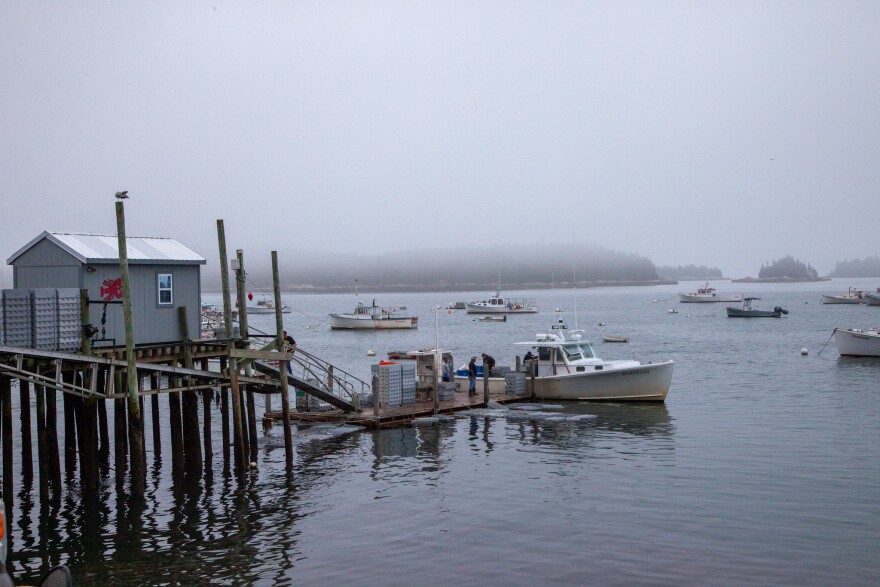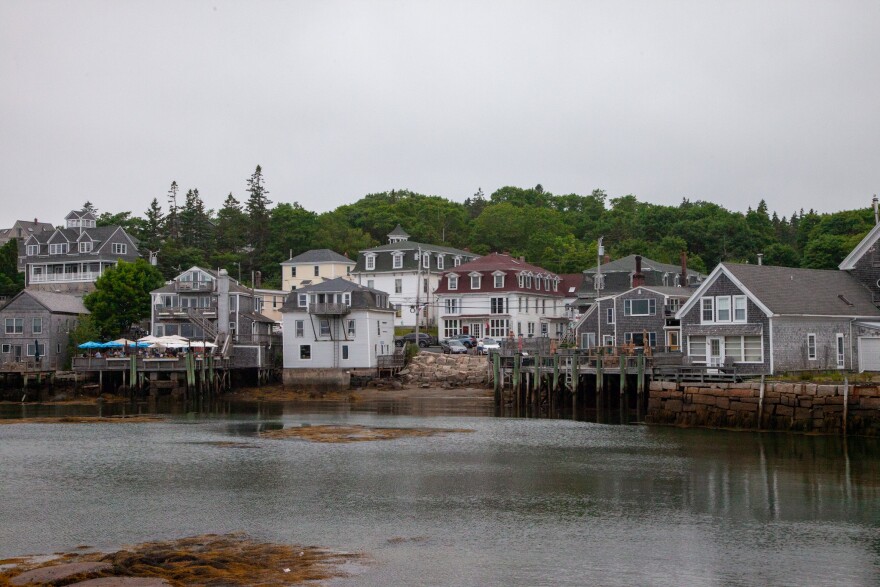As housing costs rise along Maine’s coast, more and more working families are being priced out of the market. And that’s putting an added strain on local labor forces. For communities like Stonington, Maine’s number one lobster port, that rely on income from commercial fishing, the housing crisis poses a threat to a way of life that’s been followed for generations.
The shift from a fishing-based economy to one driven by tourism has exerted pressure on the housing market in towns like Rockland and Bar Harbor. And the effects are spreading.
"Housing is critical,” said Carla Gunther, the chief scientist at the Maine Center for Coastal Fisheries. “Every community needs housing of multiple levels of affordability to make sure that people of all sorts and sizes can live and work and thrive.”
As a longtime resident of Stonington and the wife of a lobsterman, Gunther said that while some fishermen have moved inland for better and cheaper land, the main problem is rentals.
Since the COVID-19 pandemic, Gunther said that not only have housing prices soared, but vacation homes and Airbnbs have taken over many year-round rentals. She said that while many lobster captains have homes that have been in their families for generations, the main concern is for the crew.
“There's more need for rental property, and those rental properties are not necessarily going towards year-round workforce housing,” Gunther said.
And she said that in towns like Stonington, where the lobster docks fuel the economy, what affects the fishermen affects the fabric of the whole community.
“When there’s a threat to the fishery, the school board cares, the select board cares, the businesses care. It’s all connected,” Gunther said.
Paul Reynolds grew up in Stonington and has now returned to assist his mother. He said it is common for rentals to only be available during the offseason as they are reserved for vacationers during the summer.

“It's a lot. You get used to being in a place, and you get comfortable, and then you kind of have the rug pulled out from underneath you,” Reynolds said.
Reynolds said it is hard to watch the demographic change. He said he hopes to see more of an investment from those coming during the summer into the town.
“Nobody wants to see their hometown be taken over by let's say, you know, wealthy people from out of town,” Reynolds said. “You know the community is strong here, people take care of each other here, and it is saddening to see when families aren't able to stay.”
As stable housing becomes scarcer, so have waterfront employees, like lobster crews and dock workers. Ronnie Trundy, the manager of the Stonington Lobster Co-Op, which provides bait and fuel and unloads and brings to market the day’s catch, has had to find housing for many of his employees. Currently, up to eight people can stay in rental properties he has access to. He said that's vital to the business's operation.
“If it wasn't for this, we would have definitely either had to close one of our facilities down or come up with a whole new business plan,” Trundy said.
But for lobstermen without housing options, Trundy said many have to fish alone in boats that are meant for multiple sternmen.
“We’ve even had some guys that always had stern, either one or two sterns, going alone,” Trundy said. “A lot of these boats aren't set up to go alone, and it makes it that much more dangerous for them.”
But the town hasn’t fully resigned itself to these changes and is taking steps to ensure its fishing longevity. Two years ago, it passed an ordinance that requires all short-term rentals to be registered, which limits non-owner-occupied units, and enforces zoning, tax, and licensing rules to protect housing availability. There have also been discussions about creating more affordable housing, such as a mobile home park.
There are also organizations working to provide more affordable housing, such as Island Workforce Housing, which aims to create housing solutions in Deer Isle and Stonington that are affordable to individuals and families working in the communities.

Linda Nelson, the Economic and Community Development Director for Stonington, said that moving forward, their top priority is maintaining the working waterfront, and that housing is one of their top priorities.
“What our voters tell us — and it's up to them — is that they want to remain Maine's number one fishing port, and to remain a year-round vibrant community,” Nelson said.



